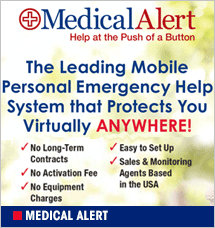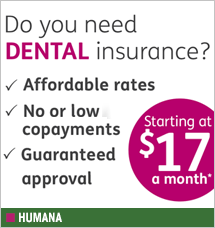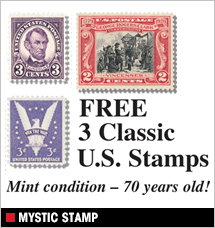Dollar Sense
Stuff You Should Know to Protect Your Money and Your Identity from Schemers, Scammers and Other Creeps

The Enormous Equifax Breach, and the Scams That It Has Generated
You’ve heard about the Equifax security breach. Are you one of the 143 million consumers who might be affected? The breach was announced on September 7, but for victims of the breach, the pain could go on and on. Equifax posted an “Am I impacted?” page where anyone could check to see if they were likely victims, though that was only available until October 8.
So far, the investigation shows that the breach period appears to have been mid-May through July 2017. As you might expect, the information that might’ve been impacted includes:
Social Security numbers, birth dates, addresses, driver license numbers, credit card numbers.
While Equifax reports the situation is contained, they recommend that you be vigilant in reviewing your account statements and credit reports. Immediately report any unauthorized activity to your bank or credit card issuer. This includes very small transactions, such as, for example, a deposit at your bank for $1 that you don’t recognize. Thieves sometimes test their access to an account by making a tiny deposit, or two or three, to see if it is active and if the transactions go unnoticed. If you see such an unexplained transaction, call your bank or credit card and ask for an explanation.
Related Scams from the Equifax Breach
The Federal Trade Commission (FTC) warns of a scam they call “Equifax isn’t calling.” Your phone rings, you answer, and the caller says “This is Equifax calling to verify your account information.” The FTC says, STOP! Tell them nothing because they are not from Equifax, they are scammers.
Other scams related to the breach have also been reported. The FTC gives these tips for recognizing and avoiding phone scams and imposter scams.
- Don’t give out personal information unless you initiated the call to a number that you know is correct. Some scams (such as email scams) may provide you with a handy phone number to call, claiming to be from a reputable organization such as Equifax, but the phone number may be part of the scam. If you need to call such an organization, look up the number yourself.
- Don’t trust caller ID. Scammers are adept at spoofing a company, such as your bank or credit card, so don’t assume the caller ID is correct. If the caller asks for personal information, it’s better to hang up, look up the phone number of the supposed caller (your bank, for example), then call it and ask if they are trying to reach you.
- If you get a robocall, hang up. The call may instruct you to press 1 to speak to a live operator, or something similar, if you wish to take your number off the call list. Don’t! It will probably result in even more robocalls.
If you receive such a call, report it to the FTC at ftc.gov. If you received a robocall and gave them information, the FTC urges you to change your compromised passwords, account numbers, and security questions.
Don’t Fall for “Secret Bank Accounts” for Bill Paying
It sounds intriguing, and who doesn’t love hiding money? The Federal Trade Commission reports that scammers are spreading information about secret accounts, also called “Social Security trust accounts,” which you can use to pay your bills, through the Federal Reserve Bank. All you have to do to have a secret account, according to the helpful scammers, is to provide them with your personal information, such as your Social Security number. Boom! You’ve got a secret account at the Federal Reserve Bank. Or… so you’re told.
Why would you want such an account? Presumably to hide money or transactions from the government. Except… the Federal Reserve is a government agency. And only banks are permitted to do banking with the Federal Reserve Bank, not individuals.
What happens if you’ve gotten a secret account? If you try to use it to pay a bill, the payment will be rejected because the account is nonexistent, and you may end up owing a late fee or penalty to the company you thought you were paying. The Federal Reserve states that only banks can do banking with the Federal Reserve, not individuals. In the meantime, to get a “secret” account, you’ve turned over personal information to the thieves running the scam.
Something for Our Military, Past and Present
If you or someone you love is a veteran or a current military member, you should know about this web page, from the Federal Trade Commission (FTC). The idea is to help military consumers and their families identify their needs.
A web page highlights the work of the FTC’s Military Task Force, aimed at identifying the needs of and empower military members and their families. Why was it designed? Because in 2016 alone the FTC was pounded with more than 100,000 consumer complaints from service members and their dependents. Two-thirds of those complaints were from retirees and veterans, and mostly concerned identify theft, impostor scams, and debt collection.
While we’re all vulnerable to scams, some of those scams are especially targeted towards the military community. Why? They are sometimes vulnerable because they relocate frequently, and because many military personnel members are on their own, earning a paycheck for the first time. Some of these scams zero in on concerns that are unique to military members, such as the threat of disciplinary action and the risk to their security clearance if they fall behind financially, both of which could impede their ability to continue serving.
Here are a couple of the areas addressed by the Military Task Force web page:
Military related charities that are shams:
- American Veterans Relief Foundation
- NHS Systems, Inc.
Mortgage debt relief companies:
- Mortgage Investors Corporation of Ohio, unlawful telemarketing and advertising of Veterans home loan refinancing services
- Prime Legal Plans, mortgage assistance relief scam
Want more? Check out the webpage from the FTC, called Military Task Force, at:
https://www.ftc.gov/policy/advocacy/military-task-force?utm_source=govdelivery.
Teresa Ambord is a former accountant and Enrolled Agent with the IRS. Now she writes full time from her home, mostly for business, and about family when the inspiration strikes.



























































